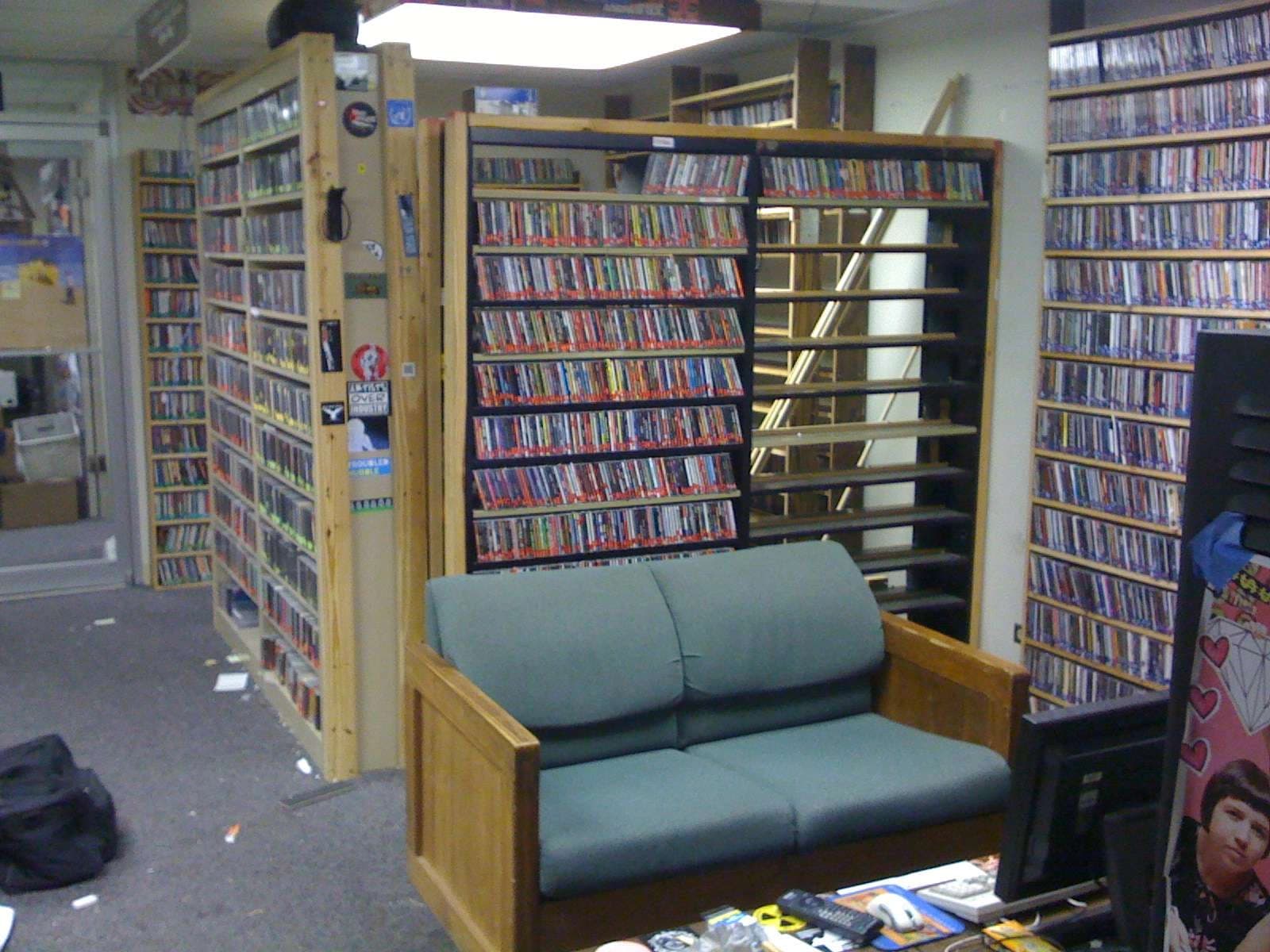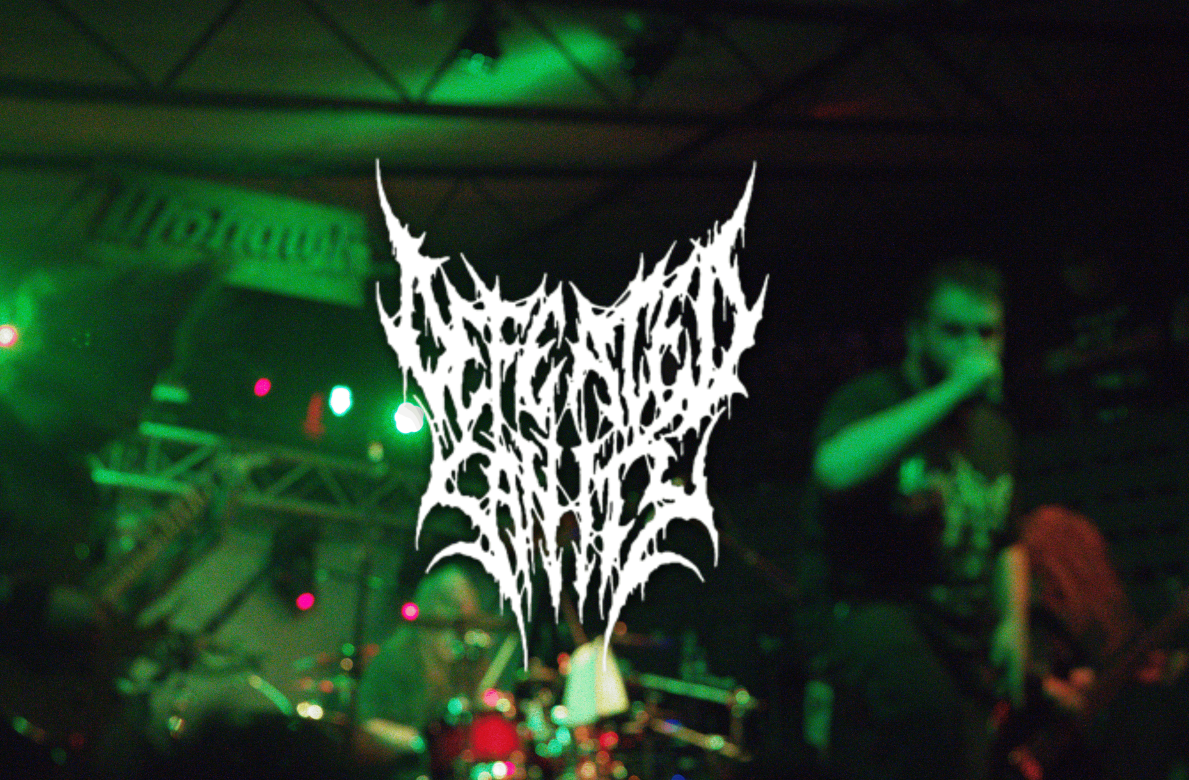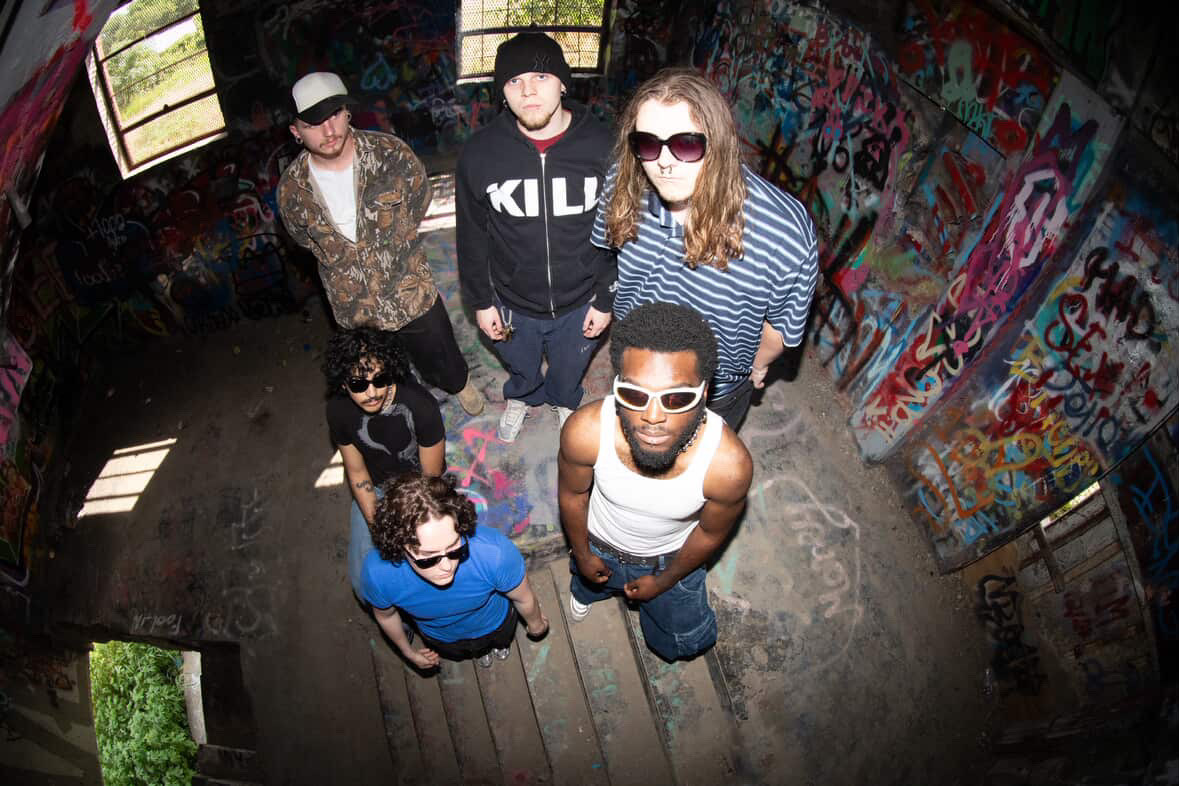Classic Rock Never Gets Old
This interview was conducted in July of 2016 by a former KANM member. Hey everyone, Patrick Celsus here! Another interview before I wrap up my college career. I wanted to go out with a bang, so I wanted to get the best, most incredible lineup that I’ve ever done. Given that, this will also be one of my shorter interviews, as all these guys have their own schedules. However, I hope you all enjoy one last treat on me. Allow me to introduce our lineup! Geddy Lee: Bassist, Keyboardist, and Lead Vocalist of Rush Rick Wakeman: Keyboardist, ex-Yes Ritchie Blackmore: Guitarist, ex-Deep Purple, ex-Rainbow, Blackmore’s Night David Gilmour: Guitarist, ex-Pink Floyd Greg Lake: Guitarist, Bassist, and Vocalist, ex-King Crimson, ex-ELP Lastly, I would like to introduce a very special guest for this interview: Black Sabbath’s very own founder and guitarist, Tony Iommi! I hope you all enjoy the once-in-a-lifetime KANM Legends of Rock Panel! Me: Gentlemen, I’d like to thank all of you for calling in today. I know this is a major commitment from all of you, especially you, Tony. Rick: Glad to be here. Greg: Thanks for having us. Tony: No problem at all. Makes for a welcome short break from the everyday. Me: Normally, I’d ask you all to introduce yourselves, but there’s clearly no need for introductions here. Also, since we have some time constraints today, I’ll be sticking to questions submitted by others here at KANM, as well as a couple of my own. Shall we get started? (General consent) Me: Alright then. First question: Are there any recordings you have made with production or instrumental errors that you wish you could fix? Geddy: Honestly, no. There are always remasters. Any so-called errors either ended up becoming a part of the album or, if they were bad enough, we were usually lucky enough to redo right there. David: I’d say it’s the same here. Early on, especially before I joined Pink Floyd, it was very much about an improvisational sound. In those cases, an error is simply another improvisation. Later on, we were more meticulous, but we allowed enough freedom and practised enough so that it always flowed well. And as Geddy mentioned, we never really had too many problems with having time to re-record if necessary. Tony: I’m just going to cut in here. When we were recording our first album, and Paranoid after that, we had very little time to record. Black Sabbath, our debut, we had to record in a single day and mix the next. Were there some production errors? Maybe, I don’t remember; I’m old after all. Did Geezer and I occasionally stray from how we wrote it? Definitely a couple times. But it made our sound, a sound that we carried on. So no, I wouldn’t change that for the world. We’ve all had albums we regretted releasing, but that mostly wasn’t due to technical or paying issues. I think I can speak for everyone here. Ritchie: That’d be correct, without a doubt. Rick: Same. Me: Thank you, gentlemen. Moving on to the next question. This is again for the whole panel, whoever would like to answer. When you were making your music that has been remembered the most, were you conscious that it was different or ahead of what contemporaries were making, or was it simply the music that felt right to make at the time? Ritchie and David: The second. (General laughter on account of the near perfect unison) Rick: We knew we had the label of progressive, or in Tony’s case, heavy metal. Sometimes those of us in that group would openly mock the labelling with something just completely absurd. Thick As a Brick is the perfect example. So we were definitely conscious of our alleged differences, but we didn’t really give a damn. For us, the music was what mattered. As tastes of the public changed, we adapted a little. But it mostly came down to how we felt, the directions we wanted to go. Greg: That’s actually why, if you look at the bands we were in, that was actually a reason for some of the turnover. Stylistic and creative differences over time. Sure, there were personality clashes as well, but we allowed for the freedom to go and explore what we wanted without any obligation from anyone else, and that’s what made it great, I feel. Me: This next question is for each of you. What are the three favourite albums you have ever created? Greg: You just had to ask, didn’t you? For me, in no particular order, I’d have to say Tarkus, Brain Salad Surgery, and then In The Court of the Crimson King. I also feel those were the landmark albums I got to work on. Geddy: This is always a tough one. However, I’d say my personal 3 are Moving Pictures, Permanent Waves, and 2112, in that order. Tony: I’m just going to pick one from each era of ours, so I don’t piss anyone off. Black Sabbath, Heaven and Hell, and I’m going to cap it off with Headless Cross. David: Dark Side [of the Moon], Wish You Were Here, and The Division Bell. Rick: I would say my favourites have been Fragile from when I was with Yes, Journey to the Centre of the Earth as well. My last one would be Close to the Edge. Ritchie: I’m going to go the same route as Tony, and pick from each group. Our debut with Rainbow remains one of my favorites; Machine Head with Purple was enjoyable too. I’m going to have to go with Ghost of A Rose for my final one. Me: Alright, this next question is for you, Mr. Gilmour. What were your thoughts on Atom Heart Mother? How much did you like it, and how often did you guys play the song live? David: Me personally, I really enjoyed Atom Heart Mother at the time. Wonderful song, I thought, and we did play it live a few times before Meddle came out. For me back then, AHM was one of our complete songs, showing who we truly were as a band. However, at this point in time I feel it was kind of shite. Still a good idea, but we definitely cocked up the execution. It’s still popular, so I’ll credit its staying power, but you won’t see it anywhere near my favourite songs we’ve written. Me: Thanks for that. My next question is for Mr. Lee. You have talked about using a 5-string bass on occasion. Have you thought about using a 6-string? What can extra strings add to the music? Geddy: That’s a good question. I have considered and used a 5-string before, but usually I tend to use that only if I want to play more notes for a solo or something like that. For me, that’s the main point of extra strings on a bass, more notes, a little more freedom to move about. But I think you could be just fine with 4 if you know what you want to do. And 6 strings for a bass just sounds like overkill to me. Me: Continuing on the subject of basses, you used to play a Rickenbacker 4001 in your early days, then you switched to Fender. Was there anything that caused the switch? Geddy: The Fender sound just felt like it worked better for me, especially as we progressed further. I still use the Rickenbacker depending on the song. It’s all about the feel and the right sound, you know? Me: Thank you, Mr. Lee. Next question I have is an interesting one for Mr. Wakeman. What is the most recent sonata you have learned? Rick: As in a classical sonata? I mean, at my age, I know most of them, though whether I can play all of those well is a different story altogether. Most recent ones I’ve done are Liszt’s first Sonata and Beethoven’s Waldstein. Me: Thank you. Mr. Iommi, the next question is for you. Do you feel as if you brought Drop-D tuning into major prominence? Tony: I would like to say I helped contribute a small part to its popularity, especially in metal, I definitely did not invent it or make it prominent in the music scene. It was already popular among blues musicians, which is where my roots were based. Further, after my hand injury years ago, dropping the tuning helped me actually play the strings without much discomfort. Drop tuning and downtuning in general helped us create our signature sound, and we did help popularize it somewhat, but no, we weren’t necessarily groundbreaking in our use of it. Me: Mr. Lake and Mr. Wakeman, you’ve been with several groups and collaborated with several artists over the years. Outside of your respective solo careers, what have been your favourites groups to work with? Rick: Obviously, Yes would be my favourite. Otherwise I wouldn’t have gone back to them so often. Beyond that, I’d have to say the late David Bowie. He was… he was a joy to work with. You could tell he was a man who loved what he did. And that enthusiasm was infectious. Greg: My time with ELP was without a doubt one of the best, most productive times of my life. Getting to work with guys as talented as Keith [Emerson] and Carl [Palmer], who both cared for the performance, gave it everything, and had some of the best technique and ability with their respective instruments. Very friendly guys as well. Especially Keith. He cared about everyone, he was that guy who wanted everyone to go home happy after a show, and he’d almost always succeed. That’s what I like to remember him and our time together by. Not by what we made, great as it was, but who we were as a band. That’s what made it my favourite. Me: My next questions are for Mr. Blackmore. How did you overcome the perception of Renaissance era music to gain a following with your latest project, Blackmore’s Night? Ritchie: I know Renaissance has that sort of camp vibe to it, and that was a minor concern of mine, that people would take it as a joke. We added more modern instrumentation that what was originally there, but we kept the same theme. I would say that went a long way to jumping that conception. Though I must say attaching the name Blackmore to it might have helped a little. Me: Our other question for you. Why do you prefer a scalloped neck on your guitars? Ritchie: Mainly, I prefer playing with a lighter touch, which allows me to add more emotion and dynamic to the music. It gives me more range in volume and technique. The scallop allows me more options in my technical playing without as much of a sacrifice in dynamics and feeling. Me: Gentlemen, I just have two more questions for the panel as a whole. Firstly, I’d like to hear your opinions on the direction of music nowadays. Tony: I have an appreciation for how much the metal community has grown, even the so-called sellout groups. Because everyone has to start somewhere. Even though we by no means have the greatest popularity, we’ve earned a loyal following, and through it all, I’m proud to be part of something which is practically a giant family that I hope keeps evolving and never dies. Geddy: I’m in a similar boat. While our style of music has somewhat fallen out of favour, we still have those who try to carry on and evolve from where we were. Steven Wilson, he makes for a great example. Those guys are the one who I’ll always respect. I’m glad to have been an impact on at least some people, whether they be from the heart of London, some small town in South America, or my hometown, and yours, of Willowdale. I know that our music won’t die, we’ll just evolve. Greg: You make a wonderful point, Geddy, especially when you bring up Willowdale. It’s just I’ve seen several groups come out recently from Canada that draw off the same influences we did. My personal favourites are Druckfarben and Tetrix. Very fun to listen to. As Geddy mentioned, not necessarily the most popular groups, but they have loyal followings, and that’s what matters to me. Ritchie: I’m equally proud of the loyal followings each of us have built, no matter how small or large. Same goes for those who followed us. I think I speak for all of us when I say that we would rather fill one small sitting room for a concert, every day for the rest of our lives, than be the world’s flavour of the month for only a few years. What makes me most proud, though, is seeing those groups that are willing to blend styles together to create something new. Just like we did years ago and to this day, those bands incorporate different elements of different styles of music. You’ve got groups like the Funky Knuckles and Snarky Puppy, which are more funk and jazz inspired, then you have the groups like Dream Theater and Symphony X, which to me feels like the true meeting point of the styles of all of us here today. Then you have all the groups in the middle. I’m happy to see people experimenting, trying new ideas. That’s what makes music great in the end, isn’t it? Me: Okay, last question. Again, I’d like everyone to give their take. We had mentioned wonderful musicians such as the late David Bowie and Keith Emerson. When these tragedies happen, we can’t help but think about how time is passing. At the end of the day, I need to ask: what do you believe your legacy is? Ritchie: For me, it’s simple. It’s knowing that I was able to inspire at least a few great musicians, who in turn, I know will inspire others to do the same. I want that to be my legacy. Even if there comes a time my name is forgotten, what we started won’t be forgotten. Tony: For me, I’d want to believe my legacy is twofold. The first is the same as Ritchie’s. Inspiring people to create music, not just be in the audience, success be damned, and go for it, be it as a hobby or a full endeavour. That was also [Ronnie James Dio’s] dream, that he inspired someone to take up music, or have his music improve someone’s life. Guess it rubbed off on both Ritchie and me. The second part also involves Ritchie in a way. It’s knowing that we were part of that group who helped bring metal to the forefront, the guys who made it what it is. It’s funny, I find myself thinking about this more often nowadays, with Sabbath being on our last tour and all. We’re not getting any younger, so we’re just giving what we have left, and I’d like to think we made an impact. David: Same for me, at least that first part. If by legacy, you mean how long will people still listen to us, hundreds of years, if I’m lucky. But just knowing we convinced some young guy in his bedroom to pick up a guitar, or learn to sing, or sign up for piano lessons, and learn. Greg: I’d like to hopefully be remembered for the same reason I remember Keith. Even if I’m forgotten one day, I will be happiest knowing my legacy was putting on performances and making music that left people feeling good, feeling happy. No one walked away feeling down. That’s what I hope my legacy is, same as Keith’s. Geddy: It almost feels like cheating, but part of mine is definitely that inspiration aspect. The other is a sort of personal or family legacy. It’s that my friends and family knew that I always gave 100% in what we did. And Tony is right, we’re not the spring chickens we once were. So at this point, that knowledge that I did the very best I could, well, what more do I need? Rick: I think everything’s been said that I wanted to say. I just had to open my mouth last, didn’t I? But I guess that’s what makes us a giant family. A group of talented guys, who had similar ideals and wanted to make beautiful music. I wasn’t the first member of this family, and it’ll be here long after all of us are gone. That would be a legacy I’d enjoy. Me: I can tell you right now, that all of what you have just said, it already is your legacy. You all have left a mark on music that will not be forgotten for a very long time. Thank you all again for joining me today; it has been a great honour. This concludes the KANM Legends of Rock Panel. Cheers, all.
More Like This
MORE FREQUENCY





